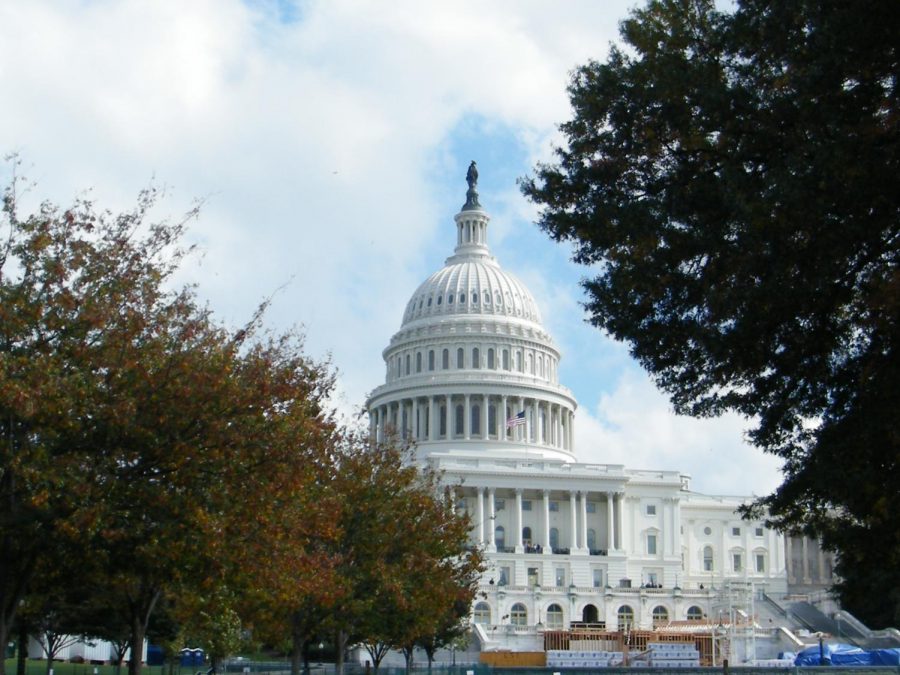
With the current state of the economy, many undergraduate students are investing in graduate programs with the hopes that the economy will turn around, jobs will be plentiful and debt will be easier to pay off.
Some students consider law school, a three-year and approximately $300,000 investment with tuition and living expenses, said William Henderson, a professor of law and director for the Center on the Global Legal Profession at Maurer School of Law, University of Indiana-Bloomington.
“If you’re not really sure you want to be a lawyer, but you want the education and expand your horizons a bit, I think a legal education is wonderful and allows you to see how society works,” Henderson said. “You get to connect with smart, capable people, but you incur a lot of debt — it’s very expensive.”
Bill Chamberlain, assistant dean and director for the Center for Career Strategy and Advancement at Northwestern University Law School, disagrees.
“Considering it’s a huge investment of time and money, people shouldn’t go to law school just because the economy’s bad and you want to go to school,” he said. “You really have to want to be a lawyer.”
The decision to apply or attend law school, whether in pursuit of a legal career or not, is a large investment and an important decision. There are many components that should factor into this decision, which can make it difficult for students to decide what choice is best for them, and if the investment and risk is worth the cost.
Weighing the evidence
Many students use online resources such as U.S. News & World Report’s law school rankings as the basis of their decisions, which are calculated by evaluating data submitted by the schools in their accreditation process for the American Bar Association, such as LSAT scores, post-graduation employment rates and assessments completed by peers in legal professions.
Some law faculty feel this data is easily manipulated by schools to earn higher rankings, and doesn’t account for the merits and unique attributes of individual programs.
“In general, (students) should consider whether or not legal education will get them where they want to go — whether that’s professionally, educationally, or just in terms of their personal development,” said Sean Reilly, assistant dean of admissions at Marquette University Law School.
Law faculty such as Chamberlain and Henderson stress “due diligence” is required of students considering law school. Chamberlain said this investigation includes talking to attorneys and reading up on current trends.
Henderson said considering students’ large investment decisions, the process requires more than looking at a school’s national ranking, such as those in U.S. News & World Report.
Robert Morse, director of data research at U.S. News & World Report, who developed the rankings method, said people shouldn’t use the rankings as their one and only source of information, but recognizes some consumers do.
Mike Koutnik, a first-year law student at Marquette, said if students know what they want to specialize in, they should look to see which colleges offer that, but they should also take into account tuition, class sizes and networking.
Reilly said sometimes students applying to law school don’t seriously consider factors such as location, which can have a larger effect on one’s experience than students may expect.
“Law school is a lot different from undergrad, so it’s really important to visit the schools you’re considering, maybe sit in on a class,” said Andrew McDonald, a second-year law student. “Visiting law schools, just like (undergraduate schools), allows you to get a feel for the school and see if it’s a good fit.”
Shopping for legal professions
The current job market and economy are unavoidable realities any student applying to graduate programs is forced to consider. Prospective law students are no exception, and must consider their employment post-graduation, in addition to the pros and cons of individual programs.
Reilly said getting exposure to the field of law — whether an internship, clerkship, volunteer experience or summer job — is helpful for students to get a sense of what it is that lawyers do and how intensive of a commitment legal professions have.
Lauren Bonanni, a 2009 graduate from the University of Baltimore School of Law was lucky enough to be hired by a firm where she had a clerkship. She is an associate at Council, Baradel, Kosmerl & Nolan, P.A. in Annapolis, Md.
She said today’s job market is even more competitive than two years ago when she first left law school, and stressed that any job students are offered can help them with legal experience and carry into any area of law, even if the position is temporary.
McDonald said at Marquette, he has found the career services in both undergraduate and law school helpful for career planning. He suggests any students considering law school should ask questions about graduate placement.
Jane Heymann, assistant dean for Career Services at the University of Wisconsin – Madison Law School, said all students should recognize the job market is very depressed, but regardless of the market, students should prepare themselves to stand out among their peers with hard work, good grades and a vibrant personality.
“(University of Baltimore) helped me become well-rounded and have hands-on experiences that put all the theory I learned into practice,” Bonanni said. “I think employers are really looking for those well-rounded individuals with good personalities and experience, not just the students from prestigious programs with really high GPA’s.”
Raising the bar
Many current and prospective law students are putting faith in the future, hoping their investments will pay off and they can stand out in the future job market.
Chamberlain said people can’t be surprised that about 90 percent of students will not get high-profile jobs that pay six figures.
“Law is just like any other business in this new economy that we have,” he said. “Law firms are hurting and not getting the business, not hiring, — it’s been affected just like anything else.”
Bonanni said the challenging amount of work and enormous pressures for students commonly has them second-guessing their choice during the first, and most difficult, year of law school.
“It often seems like a ‘hell week,’” she said. “They try to weed out those who aren’t cut out for this sort of work, but if you make it, it’s worth it to be able to help a lot of people while still making a decent living.”
With all of these factors to consider, students can get overwhelmed and lose focus on what’s important: the education, and what’s right for them.
“There are plenty of lawyers that start practicing one thing after they first graduate, but five years later, or 10 years later, or 20 years later, they may be doing something completely different,” Reilly said. “So, (it’s important to) recognize that legal education prepares the base that helps students to be lifelong learners as they continue through their careers and become practitioners.”








